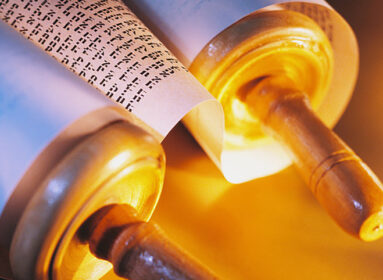
By Rabbi Tzvi Hersh Weinreb
It was November 1938. Dark clouds were gathering over all of Europe, and particularly over the Jewish communities in countries like Poland and Lithuania. Although few foresaw the horrific extent of the Holocaust that lay ahead, everyone knew that those communities were in very grave danger.
One man, a teacher and leader of those communities, found himself in the United States at that auspicious moment. He was preparing to return to his responsibilities back home in Eastern Europe, particularly to return to his students at the yeshiva he led there.
His friends and supporters in the United States pleaded with him not to return. I personally was privileged to know one of those friends, Charles Fogel, who implored this leader to remain in the safety of the United States. He refused. “I belong with my talmidim, with my disciples in the yeshiva,” he insisted.
This leader’s name was Rabbi Elchonon Wasserman, himself the foremost disciple of the Chofetz Chaim, the great sage of pre-World War II Europe. Rav Elchonon, as he was known to his many followers, already had many accomplishments to his credit, including several major published works and commentaries on the Talmud.
But Rav Elchonon’s core pride and joy was the yeshiva he created for adolescents, preparatory to their going on to higher institutes of Jewish learning. The yeshiva was known by the name of the town in which it was located, Baranovitch.
Rav Elchonon insisted upon returning to those youngsters. He said, “I am their father, and they are my children. A father does not abandon his children.”
What was the source of Rav Elchonon’s strong feelings? He had children of his own. Why was he convinced that the students of his yeshiva were no less children of his than the ones who were his real offspring?
The answer can be found in this week’s Torah portion, Bamidbar.
“These are the offspring of Aaron and Moses at the time that the Lord spoke to Moses on Mount Sinai…” (Numbers 3:1). A simple verse indeed; but it is here where the words of an even more vigilant reader are so insightful. That “reader,” of course, is Rashi, who notes that although our verse promises to list the offspring of both Aaron and Moses, only Aaron’s offspring are enumerated. There is no mention of the descendants of Moses.
Rashi’s answer is deep and powerful: Moses taught Torah to the descendants of Aaron. That made them his descendants, no less than the descendants of their biological ancestor, Aaron. In Rashi’s own words, “He who teaches Torah to his friend’s child is considered by Scripture to be a parent of that child.”
Rav Elchonon took those words to heart, and he felt for his distant students, threatened by Hitler’s clutches, what a father would feel for his children. Remaining behind in a secure sanctuary while his children were in mortal danger was inconceivable to him and completely out of the question. And so, he returned to Europe and met his ultimate fate in the Kovno ghetto at the hands of the Nazi murderers.
There is a footnote to this powerful story that I was privileged to hear from one of those very students – my Rebbe, Rav Shmuel Dovid Warshavshik, of blessed memory, who survived the Holocaust and eventually made his way to the United States. The rest of the story, Rav Shmuel Dovid would say, was that “we, teenage boys who were stuck alone in Baranovitch, knew that he would return. We were absolutely certain that he would not abandon us and that he would risk his life to rejoin us. We knew he considered himself a father, and we felt that way toward him. We were his children.”
This is the secret of a great teacher. This is the root of all authentic pedagogy. The ability to instill in one’s students the sense that they are cared for by the teacher no less than children are cared for by their parents. Students who are confident in their teacher’s concern for their well-being are capable of the kind of learning that typified the students of those yeshivot of old.
It is a rare teacher that has that gift. Rav Elchonon was one of them. But Rashi assures us that, at least to some extent, “all who teach another person’s child Torah” have the gift of becoming a teacher-parent.
Few of us, perhaps none of us, are capable of the heroism and sensitivity of Rav Elchonon. But all of us are capable of occasionally approaching a young person in our synagogue or community and giving him or her words of sincere encouragement. You never know. You may be contributing to that young person’s eventual resilience to the challenges of his or her future.
Parents must be teachers. Teachers can be parents. We all can be teachers.
Rabbi Tzvi Hersh Weinreb is the Executive Vice President, Emeritus of the Orthodox Union.







 Southern New England Jewish Ledger
Southern New England Jewish Ledger













